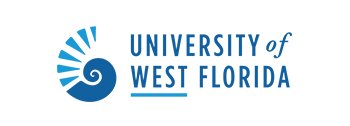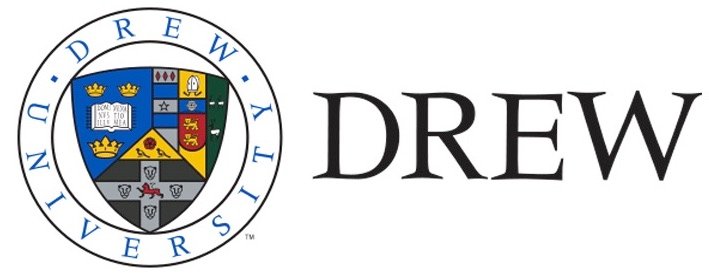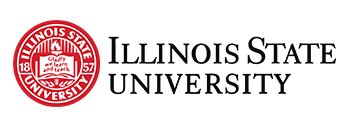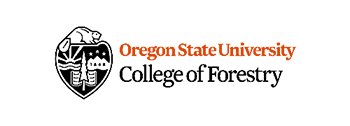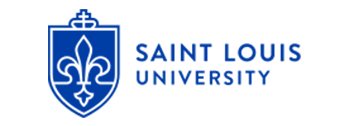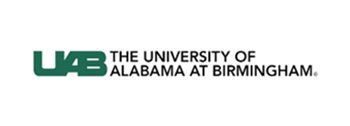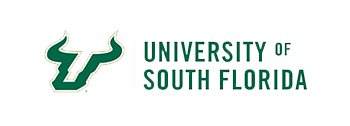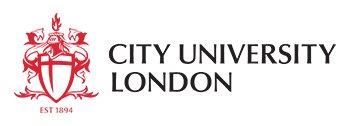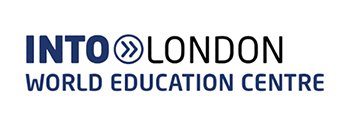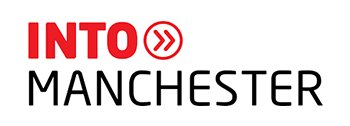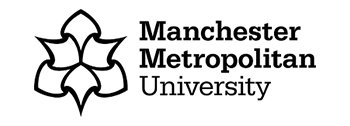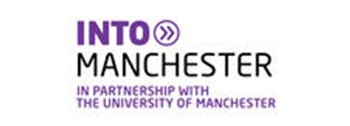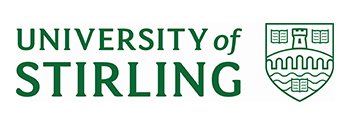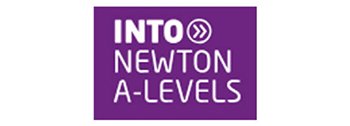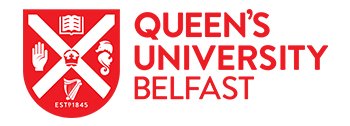The Canadian education system is one of the best among all English-speaking countries of the world, attributable to industry-relevant program structures, highly experienced faculty, and the highly stimulating environment of the educational institutions. There is a wide array of available programs that offer great value for money.
It is also one of the most industrialized countries of the world and has been consistently ranking amongst the most stable economies. A small population in a vast, resource-rich, technically advanced country means that there is always a need for skilled professionals and employability rates are high.
Apart from academics and economics, Canadian life is full of diverse experiences and boasts of high quality of living. All of the above, coupled with the easy application and visa process, make Canada an ideal destination for international students.
| S.No | University Name |
|---|---|
| 1 | McGill University’s School of Continuing Studies, Montreal, Quebec |
| 2 | University of Waterloo, Waterloo, Ontario |
| 3 | Western University, London, Ontario |
| 4 | Queen's University, Kingston, Ontario |
| 5 | University of Victoria, Victoria, British Columbia |
| 6 | York University, Toronto, Ontario |
| 7 | University of Guelph, Guelph, Ontario |
| 8 | Dalhousie University, Halifax, Nova Scotia |
| 9 | University of Manitoba, Winnipeg, Manitoba |
| 10 | University of Saskatchewan, Saskatoon, Saskatchewan |
| S.No | University Name |
JOB OPPURTUNITY AS A STUDENT
Canada, over the past few years, has seen an abundance of international students from around the world and has provided various work opportunities to both, students and working professionals. As per Forbes and US News released rankings, Canada is considered as the best country amongst G20 countries for establishing business operations. Moreover, it’s also predicted by The Economist Intelligence Unit, that the country will be ranked as the 3rd best country amongst G7 for doing business over the 5 years i.e., 2018 to 2022, which only implies that ample job opportunities await an international student during and after completion of their studies in the time to come.
Want to work while you’re in Canada? Here’s how.
Canada, over the past few years, has seen an abundance of international students from around the world and has provided various work opportunities to both, students and working professionals. As per Forbes and US News released rankings, Canada is considered as the best country amongst G20 countries for establishing business operations. Moreover, it’s also predicted by The Economist Intelligence Unit, that the country will be ranked as the 3rd best country amongst G7 for doing business over the 5 years i.e., 2018 to 2022, which only implies that ample job opportunities await an international student during and after completion of their studies in the time to come.
How to work while studying in Canada?
Working part-time while studying can be a great way to ease your finances and also gain some valuable work experience in your field of study. As an international student in Canada, you can work along with your studies, provided you:
- have a verified study permit and are a full-time student
- are studying for either a degree, diploma or certificate course
- have a Social Insurance Number (SIN)
Given these, you are allowed to work up to 20 hours per week during regular academic sessions, and work full-time during scheduled breaks, such as the winter and summer holidays or spring break. For students, employment can be on-campus and off-campus. On-campus means being a working resource on your college/university campus itself. You can work on-campus without a work permit if you have a valid study permit, or are a full-time student at:
- A public post-secondary institution, such as a college or university, or a college d’enseignement général et professionnel (CEGEP) in Quebec
- A private post-secondary institution that operates under the same rules and regulations as a public institution, and receives at least 50 per cent of its financing for its overall operations from government grants (currently only private college-level educational institutions in Quebec qualify)
- A Canadian private institution authorised by provincial statute to confer degrees.
Some options for working on-campus are:
- Research Assistant or Teaching staff (depends on research grants)
- In student organisations to uplift segments like sports, entertainment, etc.
- In library or a hospital
- Be self-employed or start a private business, including taking up a contract to provide on-campus services
Acquire a Social Insurance Number (SIN)
You will need a Social Insurance Number (SIN) from Service Canada in order to work in Canada or receive benefits and services from government programs. To apply for a SIN for on-campus work, you must have one of the following conditions or remarks printed on your study permit:
- May accept employment on institution campus where you are registered in full-time studies
- May accept employment on or off-campus if meeting eligibility criteria as per R186 (f), (v) or (w). Must cease working if no longer meeting these criteria
If your study permit does not have one of these conditions or remarks, you will need to submit a free request for an amendment to your study permit before you can apply for a SIN.
Explore careers
As a part of the Canadian government initiative, you can find out more career options by navigating through an online tool known as ‘Explore careers’ which will allow you to map suitable job opportunities as per occupation, outlook, wages, locations, education program, skills, knowledge and many other filters.
How to work once you’ve graduated?
To be able to work in Canada once you’ve completed your studies, you’ll need to have a work permit first. One of the most widely accepted is the Post-Graduation Work Permit Program (PWPP).
PWPP work permits are valid for the same length of time of your initial study program (up to a maximum of three years) and let you work in any occupation, as well as change employers at any time. To be eligible for PWPP, you must have graduated from a Designated Learning Institute (DLI). Since not all programs from DLIs fulfil the eligibility criterion, do check beforehand if your institution falls in the list. Also, remember to apply for the PWPP within 90 days of receiving written confirmation that you’ve completed your academic program.
Studying abroad can be an expensive affair, but thankfully, Canada is one country where quality education is available at tuition rates lower than many other countries.
But before you depart from India, ensure that you consider expenses like accommodation, food, health coverage, and travel along with your tuition fee when calculating the estimated cost of studying in Canada. This will help you plan your budget more effectively.
1. Tuition fee is your prime expenditure
Your expenditure on tuition fee depends on the type of qualification and institution you opt for. To cover this, you will need approximately between CAD 13,000 and CAD 35,000 a year.
Most commonly, courses in humanities, education and arts are a little cheaper, while subjects such as medicine and engineering are likely to be more expensive. If you wish to study at a postgraduate level, the tuition fee is typically higher and the costs vary depending on the program. As with most other countries, MBA programs are often the most expensive. The average cost for these programs ranges between CAD 30,000-42,000.
| S.No | Study Program | Average Annual Fee |
|---|---|---|
| 1 | Undergraduate program | $13,000 to $20,000 |
| 2 | Postgraduate master’s degree | $17,000 to $25,000 |
| 3 | Doctoral degree | $7,000 to $15,000 |
| 4 | MBA | $30,000 to $40,000 |
*Please note all fee figures are indicative
You can apply to various scholarships as well to bring down your educational expenses.
2. Calculate accommodation costs
Most universities in Canada offer on-campus residence facilities to international students. You can also opt for off-campus accommodation wherein you can share apartments with other students from India. Cost for on-campus accommodation may range anywhere from CAD 8,000 to CAD 10,000 (annually) whereas living in a shared apartment can cost you around CAD 400 to CAD 700 per month depending upon your location and time of the year. Remember, the rentals vary from city to city.
An additional option is a homestay where you stay with a host family in Canada. In this, you will have to pay a placement fee of CAD 200 and a monthly fee of CAD 750 – 950 in return for meals and a room. However, you’ll be able to participate in local activities with the host and learn about the culture closely.
3. Cost of your student visa and permit
To study in Canada, the first step is to secure a valid study permit and that comes with its own costs (approx. CAD 150). Feel free to consult your Reagan Global counselor for the latest updates and information on the visa application process and related costs.
4. Living expenses
You need to keep a little money aside for your grocery shopping, social activities and emergencies. When living in a foreign country as a student, it is better to keep track of your expenditures so that you do not overspend. Considering various expenses and living costs, a single student budget in Canada comes out to be approx. CAD 15,000 (indicative).
You should also consider these common expenses when creating your budget
- Communication expenses: As a student from India, you’d be frequently calling your friends and family back home. Therefore, always keep a section of your budget for phone bills and data expenses. Look for cost-effective calling plans and student discounts in order to stay connected with your loved ones within your monthly budget. You can find a phone plan that suits your needs, however, the average cost is approx. CAD 20 per month.
- Books and supplies: Purchasing textbooks can get a little expensive. For instance, books for engineering courses can cost you approx. CAD 250 to CAD 350. For courses like law, medicine and pharmacy, the value can go even higher. You can manage this in your budget by opting for second hand books, buying digital versions or even securing a library membership.
- Personal expenses and incidentals: Your daily expenses will include laundry, toiletries, clothing, dining out, etc. This depends entirely on the kind of lifestyle you choose for yourself.
5. Consider health support and insurance
It is mandatory for all students travelling to Canada to get medical insurance before the commencement of their program. In Canada, international student health insurance is priced between $600 and $900 per year (indicative). In British Columbia, Quebec, Alberta, Newfoundland, Manitoba, Labrador or Saskatchewan, you will be insured under the respective provincial health plans as per the length of your stay.
6. Don’t ignore your taxes
Indian students studying in Canada having a Social Insurance Number (SIN) are allowed to work 20 hours per week during academic sessions and full-time during vacations. If you choose to work along with your studies, your Canadian earned income will be taxable. Along with this, if you have a scholarship or assistantship from your institution, the federal and state governments may tax these wards.
Remember, the exchange rate variations may also affect your budgeting. We suggest you also look for a part-time job while you are studying in Canada or seek scholarship in the universities you apply to. This can help lower your cost of studying abroad to a great extent.
Our Testimonials

The consultancy guide as per student aspirations. And the shortlisting as per student profile was seamless and easy. And visa interview guidance by taking mocks and giving tips is very helpful as I applied for US university. Especially Kavita mam mentorship helped me with mocks and shortlisting.
Overall my experience was the best with Reagan Global Consultancy


I took USA student process consultancy service from Reagan Global Services and I am satisfied with their work. In my opinion they know the in and out of the process w.r.t each college they are linked with. Special mention for Kavitha who is my counselor, she supported in all steps during the process. She has a mindset of plan B, where if plan A fails and she know how to get the work done. That's how I got admissions into multiple universities.


I am pruthvi Pasham. Thank you so much for your help sir it would be greatly appreciated and i am glad that i made it till here with your help and regan global services team during the time of admission. it helped me achieve my dream to get a master's degree from a reputed institution.


I would like to thank the internal department of Reagan Global for helping my son, Wade, in exceeding mine and his expectations in the subject of Math. Your company has given me the confidence that with additional assistance, my child's deficiencies are being overcome and improvement was made after the second session and has continued through the entire program. Not only were the tutors professional and excellent at their job, but they also were very sensitive to the needs of my child. Should I run across anyone that needs tutoring, I will not hesitate to mention RGS to them. Thank you very much for your help


Thanks to Reagan Global Services who helped me in finding a master’s program that best fits my work profession. Starting from counseling till University admission they guided me in every step. I’m happy with Reagan team for following up throughout the process. Post admission, US team was in regular contact with me during my travel to the US, suggested accommodations and checked my well being. They are amazing people, they are just a call away if you need any assistance. I’m still in contact with them and I’m really glad that I met them. I personally recommend Reagan Global Services for all the students/working professionals who are looking for a consultancy to pursue your dream education!


Instilling a trust in the student planning to study abroad is very important and I discovered the same here. I was not satisfied with the choice of universities for the Industrial Engineering program before coming here. The team helped with the best of the choices of suggesting me Public Research University and helped with all the process requirements.


Reagan GLobal services has kept up-to-date information on my domain of interest for the Master's. They have been very supportive and informative every step of the way when it comes to admissions to universities. They have been very careful about processing applications from international students. I commend regan global services for their level of professionalism and reliability throughout this process.


Being a very enthusiastic person, when I was exploring to study abroad during my final year of Engineering, along with my friends I just walked in for counseling and I was amazed on the details shared during my first visit itself. I decided to follow the process without any further doubts. The team is expert in helping with documentation, visa guidance and mock interview which helped me to crack the final interview.


Karthik has mastered quite a few concepts in math in the past few weeks. I am very impressed with the instructor. I initially had some doubts about the online training thing, but it has turned out to be perfect. The sound is clear and Kartik has been following it thoroughly. I have started recommending to as many as possible……Many Thanks!


I took a good decision to follow my dream of studying in USA after working for two years in Accenture. The team helped me with good choice of universities matching to my profile and I am happy to declare that I got into my dream University – Colorado State University for Engineering program concentrating on Energy Systems. I liked the personalized service devoted whenever I met the team towards my process.


Esosa's grades have picked up to four A's and two B's. We have been very pleased with your extraordinary customer service and quality of your program. Please keep up the good work; it is making a BIG difference. Thank you!



